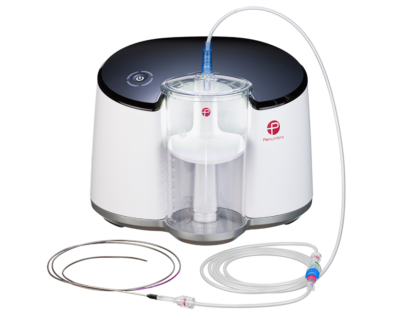
Penumbra, a global healthcare company focused on innovative therapies, today announced U.S. Food and Drug Administration (FDA) 510(k) clearance and commercial availability of the RED™ 62 Reperfusion Catheter, the latest addition to the company’s comprehensive Penumbra System®. RED 62 is designed to navigate complex distal vessel anatomy and deliver powerful aspiration, together with Penumbra ENGINE®, for the removal of blood clots in acute ischemic stroke patients with large vessel occlusions.
Now available in the U.S., Penumbra’s RED™ 62 is engineered with optimized trackability to help navigate the complex distal vessel anatomy in the brain and deliver powerful aspiration for the removal of blood clots. (Photo: Business Wire)
“In my initial experience with RED 62, I am impressed by how responsive the catheter is as I navigate through the intricate vessels of the brain,” said Kurt Reuland, M.D., interventional neuroradiologist at CHRISTUS Trinity Mother Frances Health Systemin Tyler, TX. “The performance and length of RED 62 enable me to address a broader group of patients using aspiration thrombectomy to remove blood clots and improve my patients’ health outcomes.”
The RED 62 is engineered with the latest innovations in tracking and aspiration technology to address large vessel occlusions located in more challenging distal vessel anatomy while maximizing powerful aspiration to remove blood clots. It has a low diameter profile and extended length to reach the target vessel.
“With the continued success of aspiration thrombectomy, physicians asked us to address navigation in more challenging distal vessels. RED 62 builds on our previous design generations, continuing our efforts to maximize both trackability and aspiration power,” said Adam Elsesser, president and chief executive officer of Penumbra. “This is the first catheter in the RED series, which will provide physicians with the broadest portfolio of aspiration thrombectomy solutions for stroke management while also focusing on reducing overall healthcare costs.”






